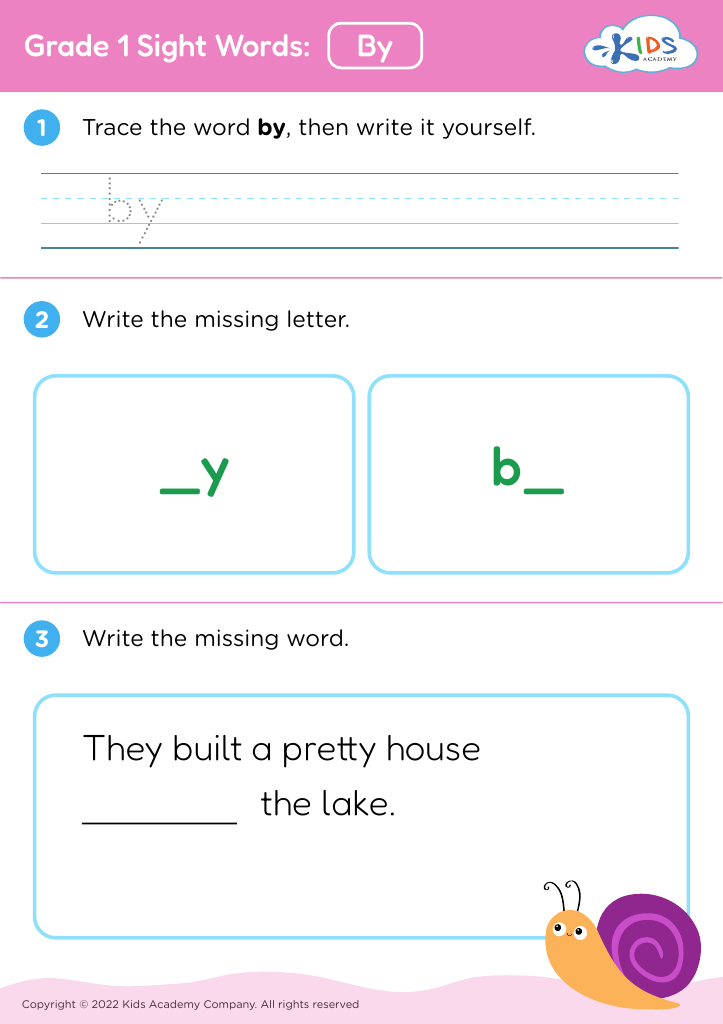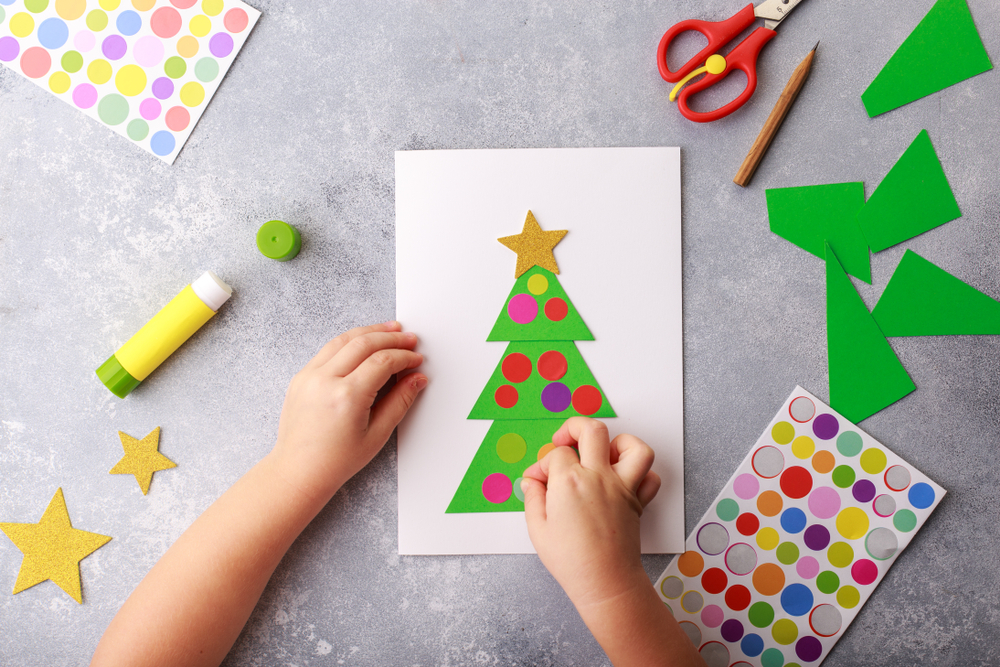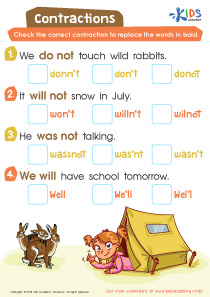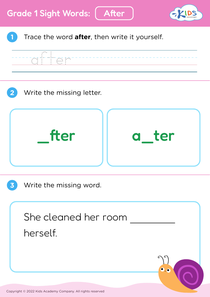Enhancing observational skills Grade 1 Worksheets
4 filtered results
-
From - To
Discover our "Enhancing Observational Skills Grade 1 Worksheets" designed to boost children's attention to detail and critical thinking. These engaging, expertly crafted worksheets focus on honing your child's ability to notice fine details, matching patterns, and discerning differences. Ideal for young learners, these activities provide a fun, interactive way to practice essential observational skills that support overall learning and cognitive development. Perfect for both classroom and homeschool settings, these worksheets are an invaluable resource for parents and teachers dedicated to fostering a sharp eye and an inquisitive mind in first graders. Unlock learning potential with Kids Academy!
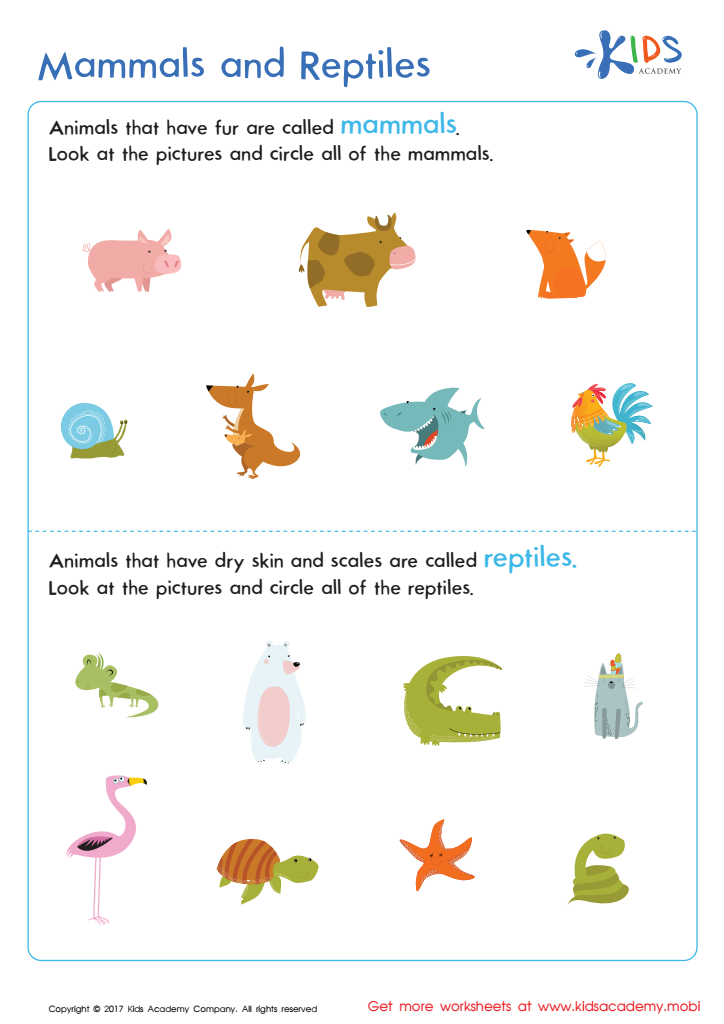

Mammals and Reptiles Worksheet
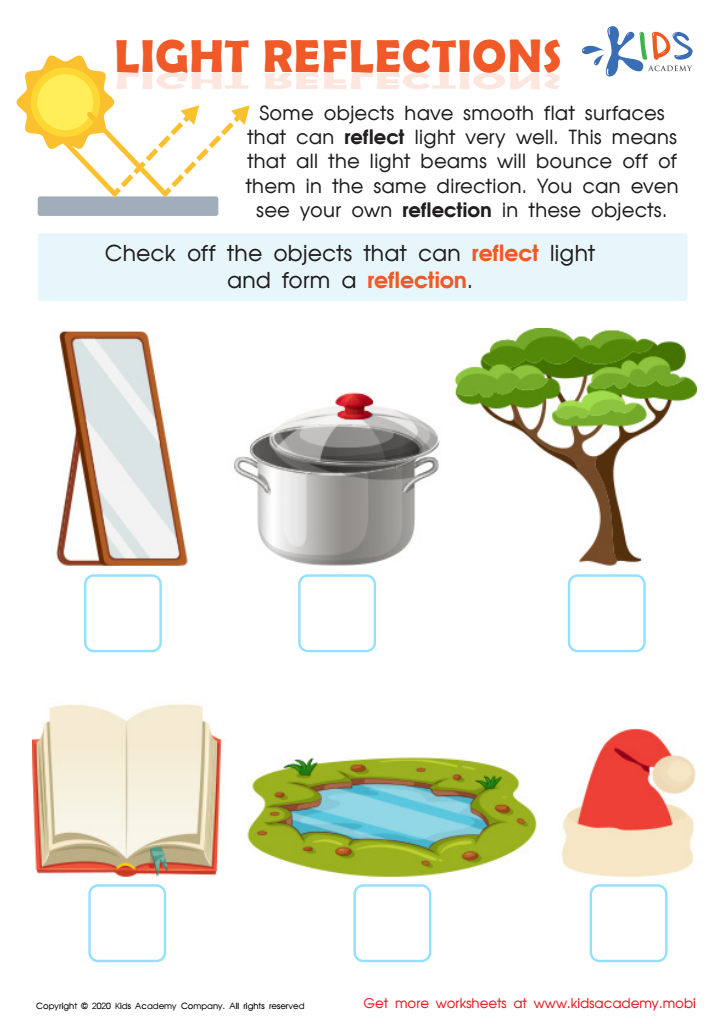

Light Reflections Worksheet
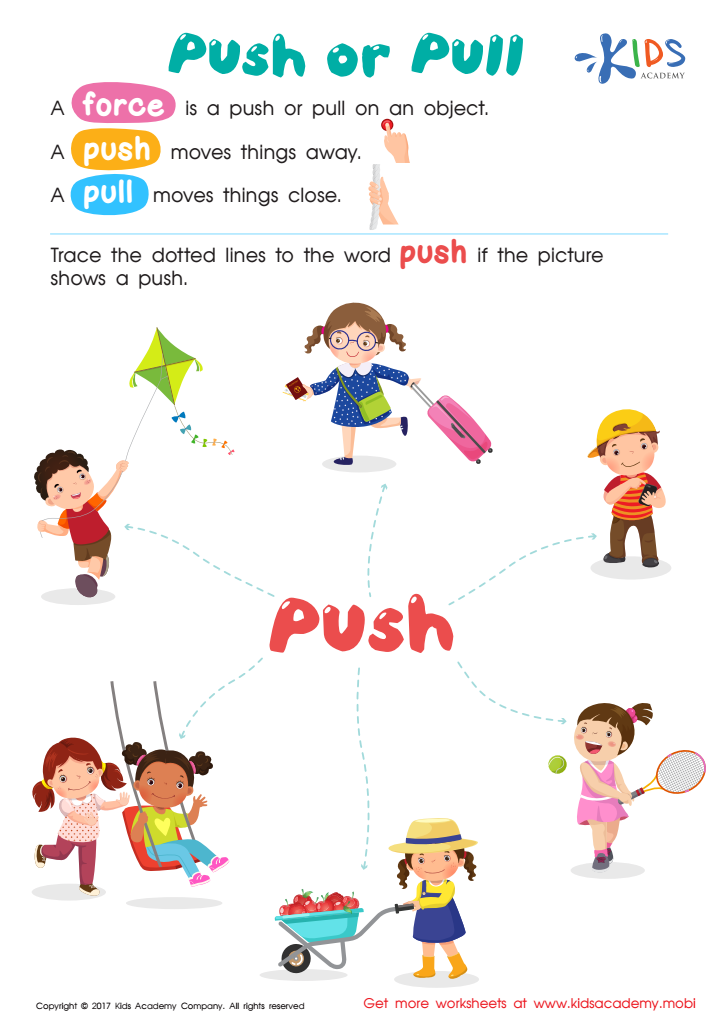

Push or Pull Worksheet
Enhancing observational skills in Grade 1 students is crucial for several developmental reasons. At this age, children are naturally curious and keenly aware of their surroundings. Fine-tuning their observational abilities helps them become more attentive and detail-oriented, laying a solid foundation for future learning. For parents and teachers, encouraging these skills means fostering a child's ability to notice and interpret details, patterns, and changes in their environment.
Developing strong observational skills early on can significantly benefit academic performance. In subjects like science, math, and reading, the ability to observe carefully aids in understanding concepts more deeply and accurately. Children learn to make connections, think critically, and solve problems more effectively.
Socially and emotionally, these skills also promote empathy and communication. Being observant of others’ feelings, expressions, and behaviors helps children respond more appropriately and build healthier relationships. Such skills also support better self-awareness, helping children recognize and manage their own emotions.
Furthermore, enhanced observational skills improve safety. Children who are observant are more likely to notice potential hazards and respond appropriately. By fostering these skills, parents and teachers equip children with essential tools for lifelong learning, problem-solving, and interpersonal relationships, which are integral to their overall development and success.

 Assign to My Students
Assign to My Students

